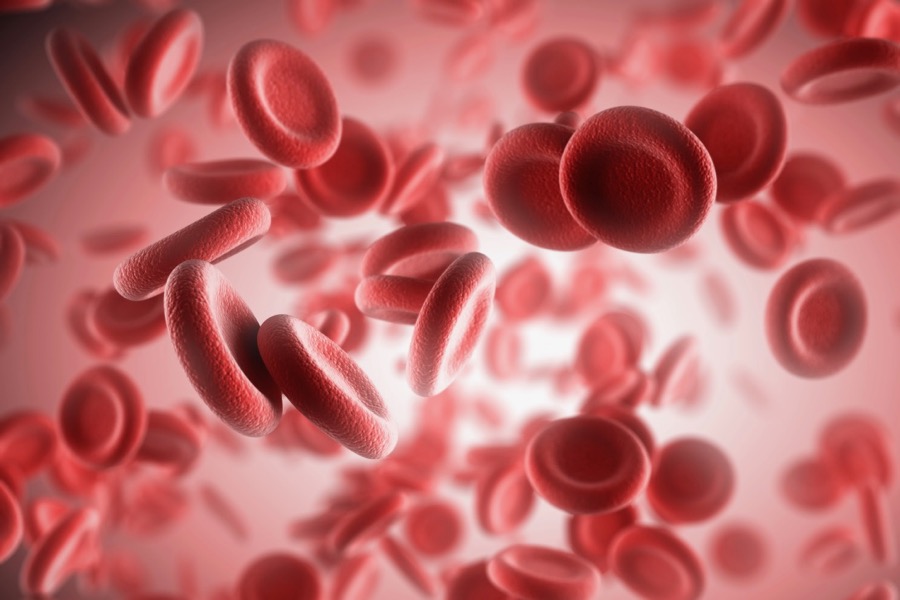Dietitian Blog, Long-Term Care, MNT Guidelines | Jun 17 2020
Anemia of chronic kidney disease

Anemia of chronic disease is the second most prevalent type of anemia worldwide. It is associated with chronic conditions such as chronic infection, autoimmune diseases, chronic kidney disease (CKD) and cancer.1 Anemia negatively impacts quality of life by causing fatigue, weakness, headaches, difficulty concentrating and shortness of breath.2 It is also associated with increased left ventricular hypertrophy and congestive heart failure, which increase morbidity and mortality risk.3 The term “anemia of chronic disease” may suggest an incurable condition. In the case of anemia due to CKD, however, effective interventions are available.
Prevalence
CKD represents an under-recognized public health crisis. While 37 million people (15% of US adults) are estimated to have CKD, only 10% are aware they have it.4 It stands to reason, then, that anemia due to CKD also often goes unrecognized and untreated. Prevalence of anemia among those with CKD is double that of the general population and increases as kidney function declines. It affects more than half of those with end-stage renal failure.3Furthermore, the anemia itself tends to become more severe as CKD progresses.2
Causes
Healthy kidneys produce erythropoietin (EPO), a hormone that stimulates red blood cell (RBC) production in the bone marrow. This process is called erythropoiesis. As kidney function decreases, EPO production declines; as a result, so does RBC production.5 Furthermore, uremia and chronic inflammation impair iron absorption.6 Even if they are adequate, iron stores may be sequestered, leading to a “functional” iron deficiency.3,5
Assessment of kidney function
Dietitians routinely include renal function tests in their nutrition assessments, including estimated GFR (eGFR). Although eGFR is not a reliable indicator of kidney function in patients with rapidly changing creatinine levels (e.g., those with acute kidney injury, many hospitalized patients), eGFR is a valid way to quantify kidney function for many populations.7 As eGFR declines, the prevalence and severity of anemia increases.
Assessment, treatment and monitoring of anemia of CKD
In addition to a complete blood count, the anemia work-up should include the following:8
- Serum ferritin—a measure of iron stores
- Serum transferrin saturation (TSAT)—serum iron divided by the total iron-binding capacity of transferrin (the main iron-binding protein in the blood).
When TSAT is less than 30% and serum ferritin is less than 500 mg/L, this suggests iron deficiency, and a one- to three-month trial of oral iron therapy is warranted.8 Oral iron is more widely available and less expensive than IV iron. However, due to decreased absorption and unpleasant side effects of oral therapy, IV iron administration may be more appropriate, especially for those with severe iron deficiency.6,8 Regardless of whether iron administration is oral or IV, iron supplementation alone is unlikely to treat anemia of CKD as it does not address the erythropoiesis deficiency. Unless there are contraindications, treatment should, therefore, include an erythropoiesis-stimulating agent such as epoetin alfa (Procrit®, Epogen®), which is administered subcutaneously.9
Role of the Dietitian
Dietitians may identify anemia due to CKD before other healthcare providers and can make appropriate recommendations for treatment that may otherwise have been overlooked. Click here for a free infographic summarizing CKD and anemia.
Dietitians On Demand is a nationwide staffing and recruiting company for registered dietitians, specializing in short-term, temporary and permanent-hire positions in acute care, long term care and food service positions. We’re dedicated to dietitians and helping them enhance their practice and excel in the workplace. Check out our job openings, request your coverage, or visit our store today!
References
Braunstein EM. Merck Manuals. Anemia of Chronic Disease (Mar 2020). Retrieved from https://www.merckmanuals.com/professional/hematology-and-oncology/anemias-caused-by-deficient-erythropoiesis/anemia-of-chronic-disease Apr 25, 2020
National Institutes of Health, National Institute of Diabetes and Digestive and Kidney Disease. Anemia in Chronic Kidney Disease. https://www.niddk.nih.gov/health-information/kidney-disease/anemia. Accessed Apr 25, 2020.
van Haalen H, Jackson J, Spinowitz B, et al. Impact of chronic kidney disease and anemia on health-related quality of life and work productivity: analysis of multinational real-world data. BMC Nephrol 2020;21:88. https://www.ncbi.nlm.nih.gov/pmc/articles/PMC7060645/
Centers for Disease Control, Chronic Kidney Disease in the United States, 2019 https://www.cdc.gov/kidneydisease/publications-resources/2019-national-facts.html Accessed Apr 25, 2020.
Braunstein EM. Merck Manuals. Anemia of Renal Disease (Mar 2020). Retreived from https://www.merckmanuals.com/professional/hematology-and-oncology/anemias-caused-by-deficient-erythropoiesis/anemia-of-renal-disease Apr 25, 2020.
Roger SD. Practical considerations for iron therapy in the management of anaemia in patients with chronic kidney disease. Clin Kidney J. 2017; 10(Suppl 1): i9–i15. https://www.ncbi.nlm.nih.gov/pmc/articles/PMC5716159/
Kidney Disease: Improving Global Outcomes (KDIGO) CKD Work Group. KDIGO 2012 Clinical Practice Guideline for the Evaluation and Management of Chronic Kidney Disease. Kidney inter., Suppl. 2013; 3: 1–150.
Kidney Disease: Improving Global Outcomes (KDIGO) Anemia Work Group. KDIGO Clinical Practice Guideline for Anemia in Chronic Kidney Disease. Kidney inter., Suppl. 2012; 2: 279–335.
S. Food and Drug Administration, Postmarket Drug Safety Information for Patients and Providers, Information on Erythropoiesis-Stimulating Agents (ESA) Epoetin alfa (marketed as Procrit, Epogen), Darbepoetin alfa (marketed as Aranesp). Content current as of 3/31/2017. Accessed Apr 25, 2020. https://www.fda.gov/drugs/postmarket-drug-safety-information-patients-and-providers/information-erythropoiesis-stimulating-agents-esa-epoetin-alfa-marketed-procrit-epogen-darbepoetin
Who we are
Dietitians On Demand is the nationwide leader in providing dietitians with jobs they love. If flexibility, competitive pay, a full benefits package, free CPEUs each month and a team dedicated to dietitians sound good to you, apply to our positions today.





